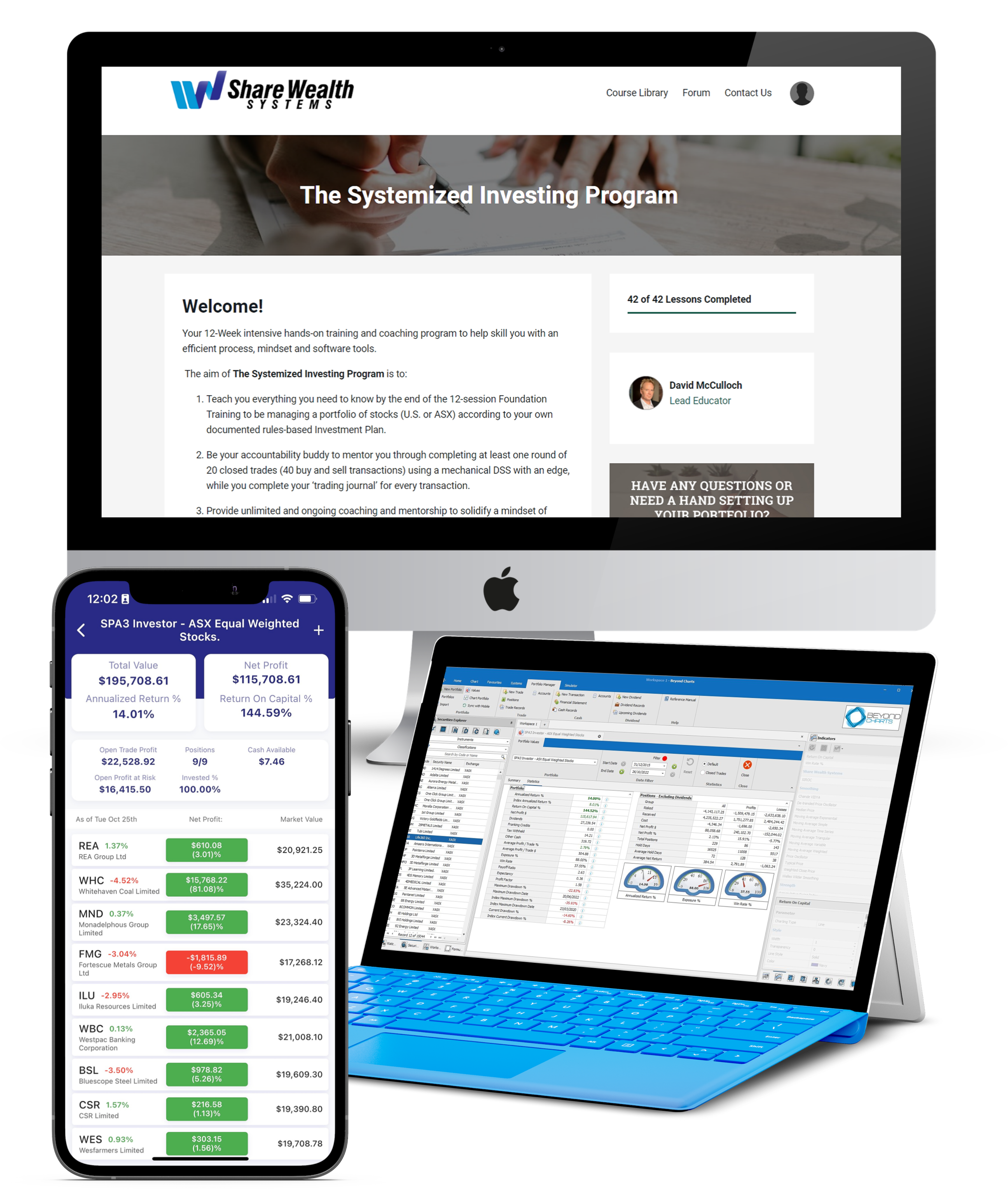Continuing from last week’s topic “societal paradigm vs market paradigm” I’ve used another 3 examples of how our social paradigm can deter us from success in the market. Whilst the societal paradigms that we learn and adopt as part and parcel of our involvement in society stand us in good stead to co-exist amicably (most of the time, i.e. we have an edge!) with our fellow human beings, they are not always the best skills for engaging the market in a consistent and profitable manner. Indeed many of these market paradigm examples required to be a successful trader and investor are actually counter-intuitive to how we interact in society on a day to day basis and hence are paradoxes.
Societal Paradigm: The need to be bigger faster vs Market Paradigm: Process determines price and speed.
Most people in the western world want more and they want it now! People look for bigger houses and faster cars to display to society how successful they are. This bigger, faster attitude of instant gratification can be suicidal in the markets without an understanding of processes.
A successful investor determines the size and speed at which to invest in the market before undertaking a strategy. Their trading plan and tools determine how much capital to put at risk and over what period. By predefining their process and strategy prior to engaging the market they are able to follow their predetermined rules in the heat of the market. Without a set of predefined rigorous and unambiguous processes the investor can be side tracked into running to bigger and faster instruments driven by greed. This manifests itself in the form of position sizes that are too big for the investors account and overtrading as the trader/investor goes flat out to attempt to produce instant results – and usually destroys their account in the process.
Societal Paradigm: Wants the in vogue stock vs Market Paradigm: Any stock that meets the rules is OK.
Can you remember the Telstra float in November 1997? Mum and Dad investors lined up to own a piece of the big telco in the hope that a future gain would be made. This is one of the many “herd” examples that drive the uneducated to in-vogue stocks simply out of a fear of missing out. This is also seen when a stock suddenly becomes a ‘market darling’ through the discovery of a mineral deposit, a cure for the common cold or other similar news driven story. The punters rush to get on board in fear of missing out and prices are pushed to ridiculous extremes before imploding and catching the unwary punter completely off guard.
An educated investor predefines his/her entry and exit criteria before entering a trade, even an in vouge one. Their criterion is not built around the name of the stock, the hearsay from media or the size of market cap but comes only from market price action. The educated investor reacts to what is happening in the market rather than trying to predict what may happen in the future.
Societal Paradigm: Reacts to negative outcomes with frustration, anger and revenge vs Market Paradigm: At peace with outcomes, whether up or down.
This is seen many times over in society and a classic example is road rage. Making a mistake on the road through lack of concentration or the ability to follow the road rules can lead to a negative reaction from other drivers. Surrounding drivers will make their frustrations known and can even display anger and or seek revenge. People involved in road rage incidents have actually been harmed because they made a concentration error on the road.
You’ll have more than enough loss trades in the market to use as a negative outcome. If you choose to react with frustration, anger and revenge in the market your judgement will become clouded and you’ll find it almost impossible to stick to a predetermined process. You will most probably compound mistakes and losses by trying to get even with the market. Developing empathy with the market and accepting that losing leads to success over the long term is perhaps one of the most important aspects of the ongoing education of traders and investors. There is no point in getting angry. As discussed in a previous blog, anger makes you stupid. A classic quote that I read somewhere: “The measure of a man is how long it takes him to get angry.” Accepting losses and moving on to the next trade with no ‘baggage’ is the mindset needed for success.
Next week I plan to outline the four stages of learning that an individual needs to go through to attain the highest level of competence.



Hi Gary,
I really appreciate the context in which you teach i.e. there is personal growth to be had in the least likely places, and this makes you a great leader, because you are always teaching with our human fabric as the context. You are a treasure. Thanks Pam
While you have an apparently sound approach, Gary, not all that you state is actually 100% correct, (and I note with some appreciation that you appreciate that fact *grin)
Regarding the Telstra float – I speak from my personal experience that everyone I know who bought into it (including myself) did so from a deep anger that Howard was selling it as if it were his own – infrastructure that generations had contributed to building, for the common good.
We spent our money in a (probably misguided) attempt to retain some public ownership in what ‘we’ had always considered to be a publicly owned facility.
I could go on, but hey, it’s *your blog, and *your overall sound concepts. Cheers.
These are great articles that i can relate to as a beginner.
thanks